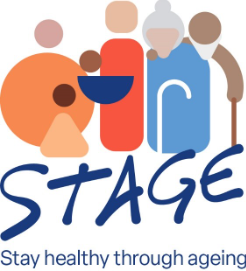An increasingly ageing society
By 2050, the population aged 75 years and over is expected to double in almost all European regions. This demographic presents both personal and societal challenges that require integrated and agile solutions. A person’s opportunity to ‘stay healthy through ageing’ is dependent on many factors including people’s diverse living environments, social stressors, and the biology of ageing.
To address the gaps in scientific evidence and the multiple ethical, societal, and structural barriers which exist, a new European research project studying healthy ageing was launched in January 2024. Led by the University of Oulu in Finland, the consortium’s research will use data spanning the entire life course to explore how a person ages with multi-morbidity, which means having two or more long-term health conditions, and how it could be prevented. Beta is playing a crucial role in this project, supporting the consortium to communicate, disseminate and exploit the anticipated results.
What will STAGE aim to achieve?
The project team advocates that promoting healthy ageing should begin as early as possible and/or be actively corrected by personalised prevention. The solutions developed by STAGE will focus on providing health and care services tailored to individuals’ specific needs at different stages of life. These solutions aim to identify, prevent, and reduce the risk of ageing with multi-morbidity through a collaborative effort involving citizens, patients, healthcare providers, and policymakers. This will involve:
- Generating models and AI-assisted, age-friendly tools
- Conducting cohort-based clinical studies
- Developing a digital, interactive, Europe-wide healthy ageing atlas to guide policymaking and urban development for age-friendly neighbourhoods.
European Research Collaboration
This highly ambitious project includes 22 partners, from research institutions, small and medium-sized enterprises, and an NGO, across 11 countries. The consortium has received a total grant of €17.7m from the EU’s Horizon Europe Research and Innovation Programme and is additionally supported by €2.2m from UKRI.

